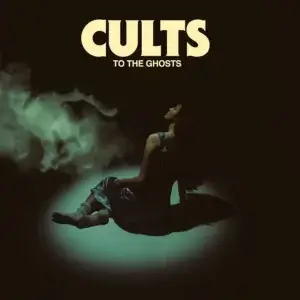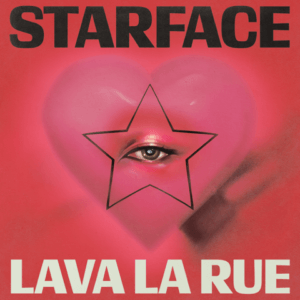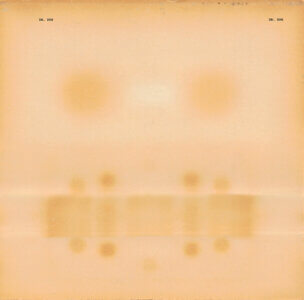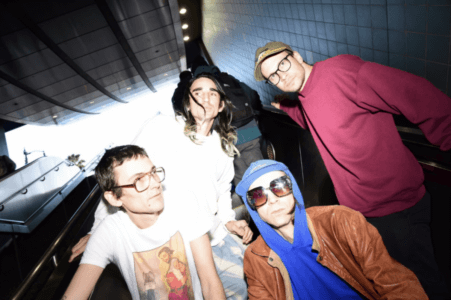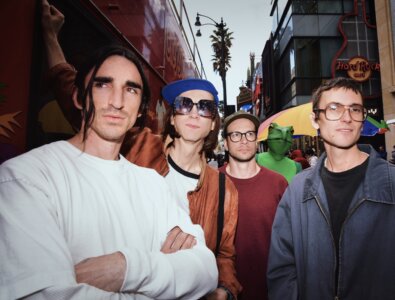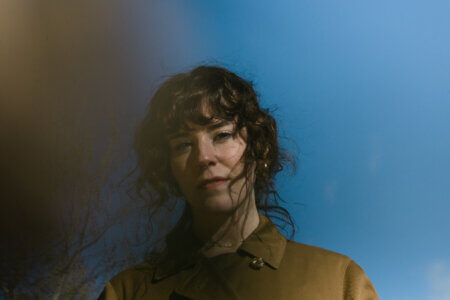Diiv Morph Into A Cohesive Unit

No band has traversed as meticulously or as methodically the complex realities of existing in end stage capitalism as DIIV. On Frog in Boiling Water, an album title that makes reference to “The Boiling Frog” in Daniel Quinn’s The Story of B, DIIV examines the dystopian-esque world in which we exist and crafts 10 songs that provide 10 different snapshots of it through a haze of reverb-laden guitars, tape loops, breakbeats and hushed vocal passages. Frog in Boiling Water releases on May 24th via Fantasy Records and in preparation of its release, and their North American tour, the band very generously shared a zoom call with me to discuss their process in making the album, their attention to detail on the visual aspects of it’s rollout, and the musical and esoteric reference points in which inspired it.
NT: The band has said that Frog in Boiling Water is the most collaborative DIIV album to date. Could you tell me a bit about that process?
Ben: I guess it’s like each of us presented demos at different points and then it was kind of an open invitation for any of us to work on or alter those demos once they were presented. We would just send files back and forth and we all had free reign to work on each other’s compositions and do whatever we wanted. But you know not everyone is gonna like what you do so then it would open up a dialogue with everyone about what we did like or didn’t like. Some of the demos went through 20 or more different iterations.
Cole: It was kind of like an evolution of the process over the course of our past records but kind of felt like a model of the change we wanted to see in the world – no hierarchies. It felt like something we ideologically wanted to attempt. There’s all this mythology surrounding these collaborative bands and we just thought “why not go all the way?” So we did, for better or for worse y’know?
NT: It certainly sounds like a progression of the band. There’s some crossover between FIBW and Deceiver but I feel a lot of the songwriting, and a lot of the sound palettes that you’re touching on has really expanded. Was the use of tape loops, and sampling something that you talked about doing before you went into recording this album or was that something that came about in the later stages?
Ben: It was part of the process early on. It wasn’t something we only started once we really started producing the album. We wrote some of the songs around breakbeats and stuff like that and were using tape cassettes as drones and other methods.
Bailey: Yeah I don’t remember a specific conversation where we were like “yo let’s use tape loops” but I’m sure we had at some point? Somebody must’ve suggested it right? We didn’t just randomly start doing it. But it was a part of the process from early on in the making of the album.
Colin: Didn’t you just start doing it as a hobby and then we just thought it was cool?
Bailey: Well it was already one of Ben’s hobbies and then I was trying to get into circuit bending video mixers but kept breaking them. Ben suggested circuit bending tape machines because they’re the easiest circuit bend to do. But yeah when we went out to the desert I had those tape machines and Ben brought his Tascam but it was probably something simple like “oh you should bring that thing, it’s cool,” but didn’t really have a place on the album until it really worked. I think the first song I worked on was “Everyone Out” when we were out in the desert and we started laying down some tape layers and it was actually really sick.
Cole: I think another layer of it was constructing the music in isolation. Where you’re constructing a song on the computer, without a live band – a big part of it was just making use of what you have outside of the context of being in a room, playing instruments together or whatever. Tapes and breakbeats bring this human element. A lot of the downfall of recording on a computer is the lack of a human element, everything is automated or on a grid. Breakbeats are drum loops that are recorded by some of the most talented humans, or cassette tapes that bring in this human element that was missing from an isolated process.
NT: It’s interesting that this is your most collaborative album yet when a lot of the writing might’ve taken place when you couldn’t have been in a room together.
Colin: Well a lot of it did. We spent a lot of time either at a house, or in the practice space, or in the desert. There was a split between our time but it’s so hard to quantify this stuff or measure it.
Cole: Writing the record was a very long process that had a lot of phases and different environments. There were a lot of different contexts within the 3 years we took to write it. When you’re writing on the computer, in this isolated environment, a thing happens where you get really excited about a song but come back to it an hour later and are like “this sucks.” Sending it to everyone else was like fresh ears which helped build confidence in what we were doing in the early stages. It was collaborative in different ways, and the process just changed so many different times. It felt like there were different eras for the writing.
Colin: It’s so cool that we managed to write an album that sounds so cohesive because the ideas and songs came from so many different times. On paper you think it would sound like such a mish-mash but it does feel very balanced throughout.
NT: Is there a song that made it onto album that you can pinpoint as having been written in the earlier stages?
Ben: We’ve been asked that a few times and it feels like our answer is always changing.
Bailey: I always say “Somber The Drums.” That one was the first one we started trying out live and was like a complete song.
Ben: It was kind of the only one we played live before recording it.
Cole: Another answer we’ve given is “Reflected.” It felt like the first we had narrowed down on a sound. The demo felt like it had a world and we were like “okay this is something we can live in.” It had balanced a lot of the stuff we had been doing. It felt like it coalaced all the demos that came before it and created a world that was then like a jumping off point for other ones. As you work on one it levels up and you can take what you learned on one song and apply it to the next so they’re kinda leapfrogging off of eachother.
NT: You guys mentioned working in the desert a few times. Was that with Chris Coady?
Cole: Chris came out a couple times and lent us some gear and stuff. That was the beginning of working with Chris. He would send us in a direction. At the time we thought we were prepping to record stuff for the record when we were in the desert but even the process there changed so much. It was sort of a rude awakening in some ways where we realized we weren’t even close to finishing the album. We thought we were bringing him in at the final stages but we really were bringing him in at the beginning. He shifted the focus to us playing the songs live and shifted it to more of a rock record. And that is what we ended up doing. The album is very live – it’s all single takes and it’s not a computer record like we thought it’d be.
Bailey: We had a long talk with him out on these boulders. I feel like that was when the album came together as an idea of what it was going to be. I think of that hour long talk on this 30 foot boulder as when we really started the record.
Cole: During that conversation we thought we were doing two records. Like a Kid A, Amnesiac kind of thing.
NT: I read a quote from Kerry McCoy of Deafheaven who said that their recent album Infinite Granite was their Ok Computer. Would you assign a specific Radiohead album to FIBW?
Colin: I think we literally said the same thing about this one.
Cole: No I think we said Kid A.
Colin: No, initially we wanted to make a Kid A but once we pivoted to making a live record we were like “oh wait we’re making Ok Computer.” Our intention was to make the more experimental, electronic sequenced thing. Does that sound right?
Bailey: It feels more like In Rainbows to me.
Colin: You’re jumping too far ahead…
Cole: I do think Kid A was the one we referenced the most. I know it was the one I was listening to the most. We didn’t reference a whole lot of records on this one but it did feel like Kid A was like my hype music for driving to the studio because that record always has new stuff bein revealed on every listen. It feels so lame or highschool to be like “Radiohead is cool or whatever” but maybe thinking of Radiohead in that way can die. It’s so meticulous and that’s like our process – we’re very meticulous and wanted a record that similarly revealed new things on every listen. Different textures, easter eggs and stuff. But it’s funny, people talk about the Radiohead albums in reference to The Beatles where it’ll be like The Bends is Rubber Soul or Ok Computer is Revolver. There is this cliche road map that gets used a lot and it’s funny to see The Beatles arch get appropriated and recontextualized through Radiohead.
NT: Speaking of references, I remember reading that Built to Spill was an influence for some of the guitar playing on “Brown Paper Bag.” I noticed a lot of the guitar playing on the album was similarly more alt-rock-y, and angular as opposed to a more traditional “shoegaze” approach. Was that approach something that came more naturally or was it intentional?
Cole: Well neither of our first two albums have any chords at all. We started utilizing chords on Deceiver and then it just became another tool we had. I think for “Brown Paper Bag” we weren’t pulling up Built to Spill records necessarily but it felt connected. It’s not trying to ape any of the artist’s sounds but trying to draw a line between a few of our influences.
Colin: Sometimes it’s more like bite sized references. Like “oh this is the Built to Spill part,” but you might not necessarily know that from listening. The post chorus in the “Brown Paper Bag” demo sounded really small, and clumsy in a similar way to how some Built to Spill songs sound – in a really beautiful, anyone-can-play-the-part kind of way. It was a reference point of a feeling but we grew beyond it. The Melvins reference is like a prompt for how Ben should play, but Ben is of course gonna play how he plays so it grows beyond the reference. On Deceiver it felt like the references were more ingrained into the songwriting and performances.
Cole: We’ve listened to so much music and talked about so much music together that I think any music fan, nerd or whatever can sort of just shorthand a sound instead of describing every element of it. You can just say “oh the Built to Spill part on “Brown Paper Bag” or on Deceiver there’s the Deafheaven part.” You can just sort of shorthand to convey a feeling or a tool they used but I think it only really exists internally and then we’ll maybe reference it in a press thing to give people some context or something to talk about. I don’t think it carries much weight in terms of being like a guidepost for us or anything, it’s more of just a shorthand.
NT: A lot of the visual aspects in regards to the rollout of the album has been very esoteric, or dissociative. How important were the visual aspects for you guys when it came to the rollout of the album?
Cole: I think all our favorite records create a world and bring you into that. Making and releasing music is such a multimedia experience now. We really wanted to have fun and really flesh out the world we were trying to create. Especially in “Soul-net” the song kind of exists in a dark corner of the internet world and we thought it’d be fun to explore that some more.
Ben: We’ve always wanted a really cohesive album rollout and I think we put so much energy into just making the album by the time it’s ready to be put out, all we want to do is just release it. Before the album came out we knew we wanted this really cohesive packaging around it. So we’ve been super intentional and worked really hard in creating this world aside from the audio. There’s a whole lore surrounding the release that you can dive into if you really wanted.
NT: Speaking of “Soul-net” and esotericism, is that song about Prison Planet Theory? Because that’s how I interpreted it but I just wanted to confirm my suspicion.
Bailey: I forget how I got into that but I used to go on flat earth subreddits and argue with them before that then expanded into something deeper where I really tried to understand them. Flat earth is a great conspiracy theory because it’s an umbrella for all these other theories. I would always be talking about the theories in rehearsals or writing sessions, looking at people’s posts and being like “damn that’s so bleak.” It evolved into one of the themes on the record.
Cole: Bailey is selling himself short. Bailey is like a social worker for these people who are searching for some kind of meaning in an existence that is painful. The song really came from that idea where people are like finding themselves and finding community for the first time and finding answers to why their life sucks but at the same time completely losing the plot. Completely losing themselves but finding themselves at the same time. Which I thought was such a beautiful paradox but at the same time so sad. One of the nixed titles for “Soul-net” was “Saturn Time Cube” because that was a conspiracy theory that related to the message the song was trying to convey. Finding an explanation as to why your life sucks and it’s not capitalism but, dare I say, some other insane explanation.
Bailey: It’s literally aliens.
Cole: Literally aliens. So it felt tied to the record in that sense where neoliberalism wants to tell you that everything except capitalism is the problem. The working class is the problem, that guy over there is the problem. This felt like such an absurd direction for that so it felt very tied into the record, and such a snapshot of the dystopian aspect of the modern condition. It comes from that paradox of Bailey’s work of trying to help people who are lost. These people alienate themselves from their friends, families, everyone, except for other people in this community. And it’s cool that you picked up on that because I don’t think anyone else has picked up on the prison planet thing to us yet.
Bailey: I was totally expecting more people to pick up on that, or at least even ther/EscapePrisonPlanet subreddit to pick up on that. But nobody ever posted it on there. I even asked them, “if you wrote a song about the soul-trap what would you call it?” cause we were looking for a name for the song.
Cole: There’s specific lyrical stuff especially in the bridge that talks about ideas that are straight from that and also works as metaphors. It’s really interesting that that hasn’t been pointed out before.
Bailey: I’m pretty sure Meshuggah has a whole album about prison planet.
Ben: Chaosphere, the album cover is like the chains around the planet. Not to go too far off the trail, but something we talked about a lot was how before covid a lot of conspiracy stuff was vaguely left-wing. Even stuff like Prison Planet, Alex Jones, that Zeitgeists movie, and 9/11 conspiracies. Maybe it was because George Bush was the president at the time, but it seems like those people have evolved into fully right-wing grifters. It almost feels like that in itself is a conspiracy; that the whole conspiracy world has been captured by right-wing fascists.
Bailey: That’s by design. That’s how the system sustains homeostasis. It self regulates so if what the establishment considers left in charge, even if it’s center-right, the conspiracy theory or any opposition to it will be on the right or vice versa. There’s this constant tug and pull in every direction because when you do that you always end up in the middle. Which is what they want.
NT: Speaking on conspiracy theories, Bailey I know you had your true false believers podcast where you touched on some conspiracies, will the DIIV podcast be making a return anytime soon? Would you want to do more long form discussions on conspiracy theories that interest you?
Bailey: We are gonna have more podcasts but I don’t know if they’ll ever be focused on conspiracy theories.
Colin: We talk about this stuff a lot so it’s hard for it not to be on a podcast episode.
Cole: Bailey you should tell the story about when we talked about flat earth on that FADER interview and the consequences of that.
Bailey: Oh yeah, one time we were doing that “would you rather do this or that” sorta things and they asked me if I rather “go on a date with a flat earther or a climate change denier,” which I pointed out that all flat earthers are climate change deniers. But then Mark Sargeant, who was the top dog celebrity flat earther, made a video saying that we were flat earthers then he reached out. We were chatting, and I kinda led him along for a bit so I could get an in. He was fascinated with me because I was essentially the only non-flat earther who wasn’t calling him stupid. He even invited me to speak at a flat earth conference. I went down there with my friend but I didn’t end up speaking because my friend got so bummed out when he met other flat earthers.
Order Frog In Boiling Water by Diiv HERE
Latest Reviews
Tracks
Advertisement
Looking for something new to listen to?
Sign up to our all-new newsletter for top-notch reviews, news, videos and playlists.


